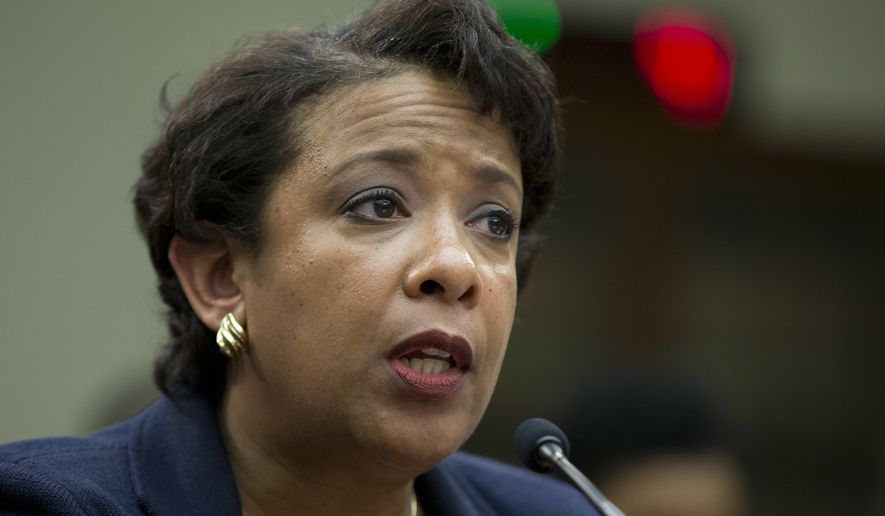Attorney General Loretta Lynch said Tuesday she won’t answer any more questions about her decision not to prosecute Hillary Clinton for her mishandling of classified information, saying only that it would be “inappropriate” for her to get into details.
She put the onus on FBI Director James Comey, saying that she accepted his recommendation — but she refused to say how she herself saw the information.
“I would have to refer you to Director Comey,” she said.
She did defend her decision not to recuse herself from the investigation into Mrs. Clinton, who was the wife of her former boss, President Clinton, and the political ally of her current boss, President Obama.
“The matter was handled like any other matter,” she said.
Ms. Lynch also defended her “social conversation” with Mr. Clinton at an airport just days before FBI agents interviewed Mrs. Clinton.
Ms. Lynch also defended her “social conversation” with Mr. Clinton at an airport just days before FBI agents interviewed Mrs. Clinton.
Mr. Comey last week said Mrs. Clinton may well have broken federal laws by sending and receiving classified information on her secret server kept at her home in New York. But Mr. Comey, a former prosecutor and top Justice Department official himself, said Mrs. Clinton was too unsophisticated to understand the technology or the classification system for him to prove she intended to mishandling the information — and he concluded no prosecutor could make a case.
Ms. Lynch, who had the final say, said she agreed with Mr. Comey, and closed out the case. But she has not explained her own thinking.
Judiciary Committee Chairman Bob Goodlatte prodded Ms. Lynch, asking her whether she agreed with Mr. Comey’s conclusions that Mrs. Clinton may have broken laws. Mr. Goodlatte also asked Ms. Lynch to detail her understanding of the key parts of law that govern classified information.
She replied that the law speaks for itself, and refused to say any more.
For many Republicans on Capitol Hill, and indeed many voters, the law on its face would appear to indict Mrs. Clinton’s behavior. It requires only “gross negligence” in handling classified information — a standard Mr. Comey said Mrs. Clinton likely met.
But Mr. Comey said even though it’s not written explicitly into the law, the statute requires Mrs. Clinton to have knowingly mishandled the information. Her lack of sophistication undercut his ability to make that case, he said.
Republicans were stunned that Ms. Lynch refused to answer questions.
“You are in charge of the Department of Justice. The buck stops with you,” said Rep. F. James Sensenbrenner Jr., Wisconsin Republican.
He said Ms. Lynch has created a credibility gap by prosecuting members of the military for sending emails with classified information, but failing to go after Mrs. Clinton.
“You have a problem, madame attorney general,” he said.
She replied: “Every case stands on its own separate facts.”

No comments:
Post a Comment